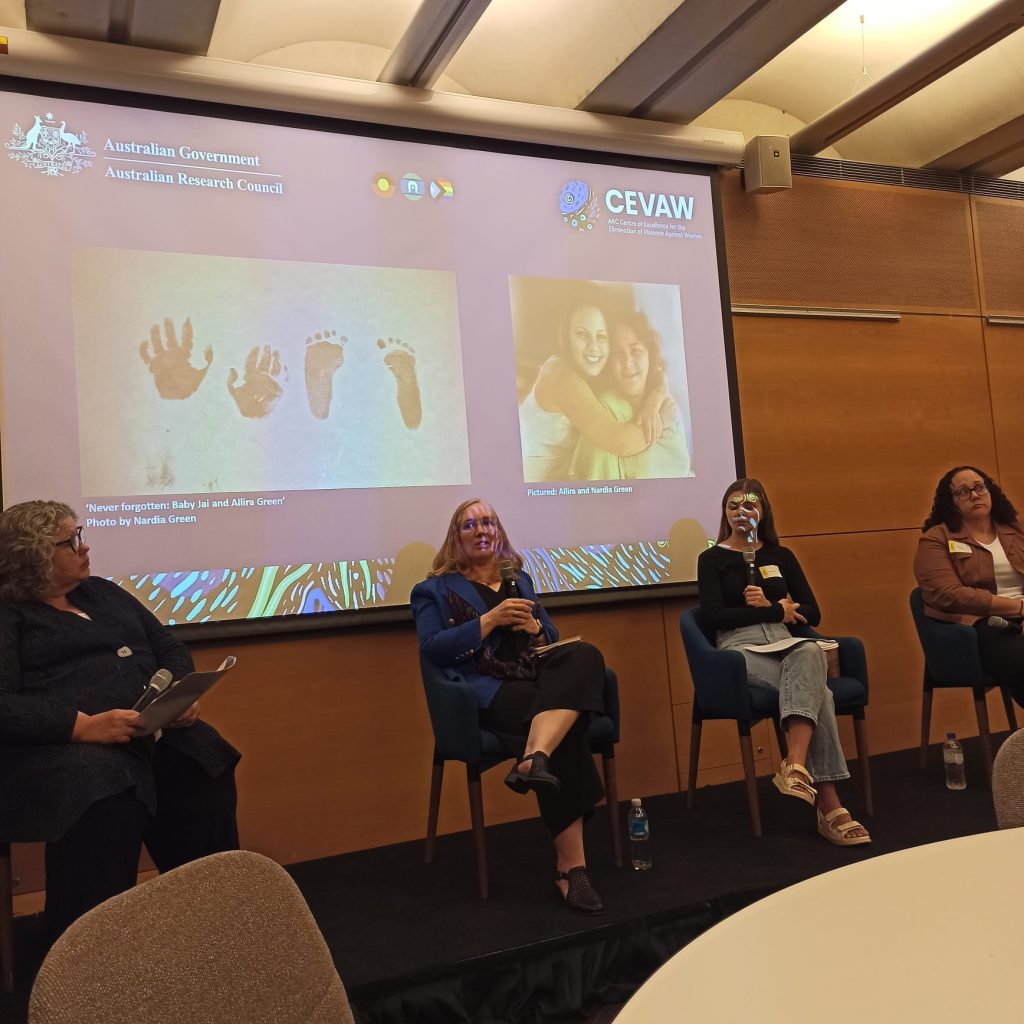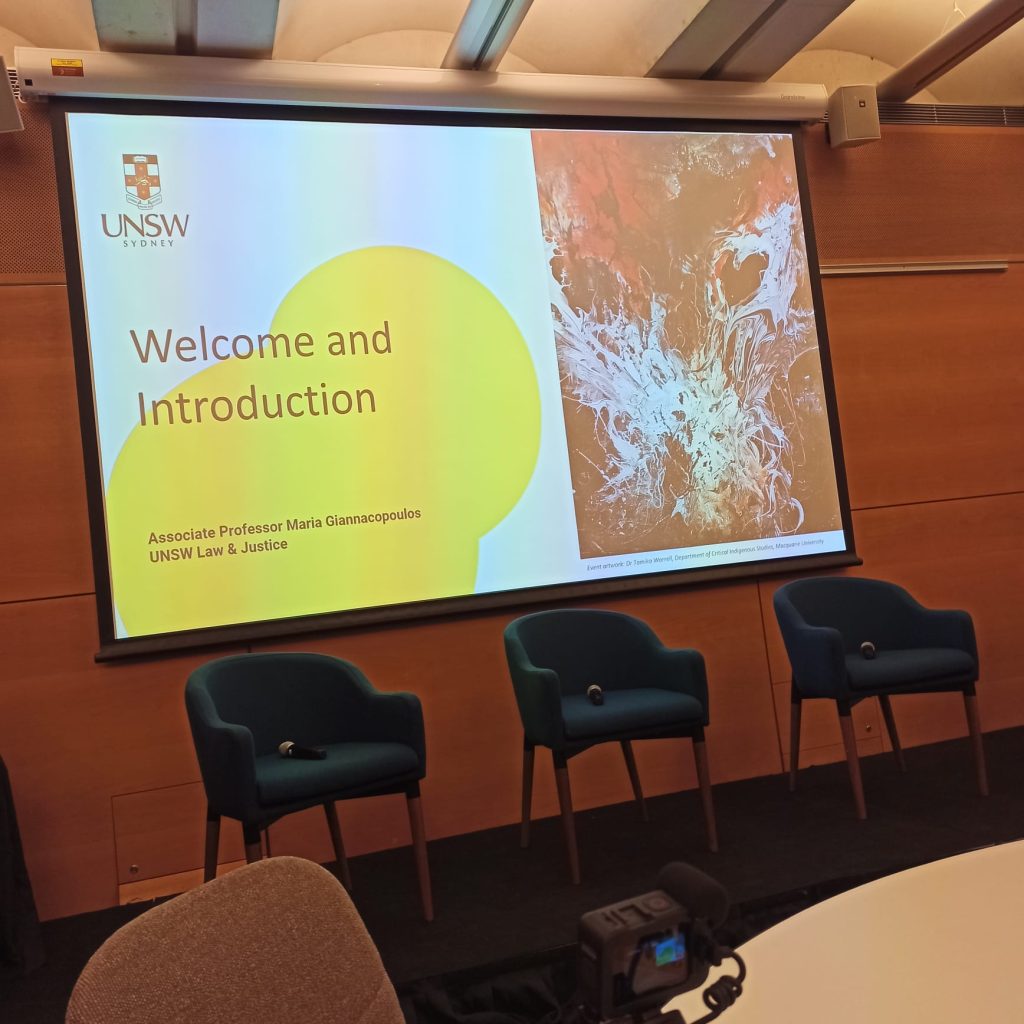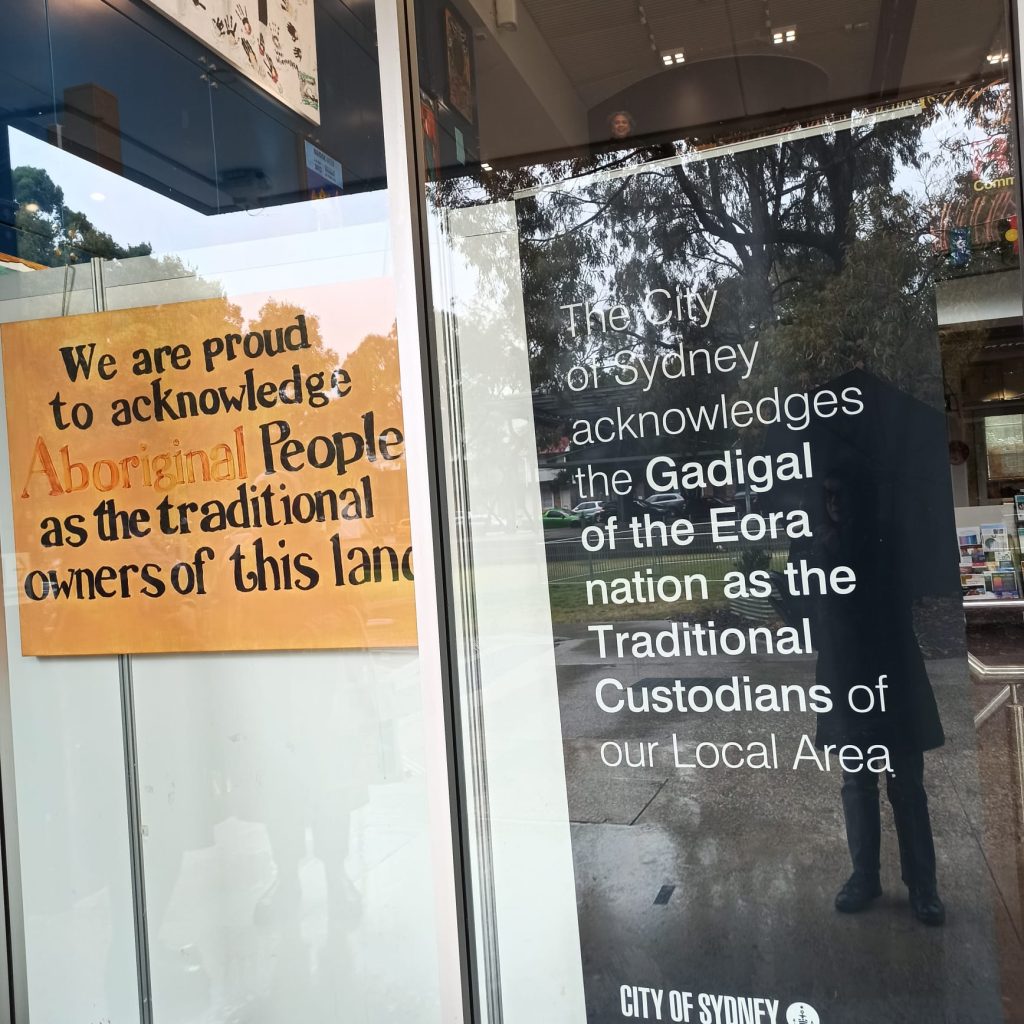CONVIVIALITY IN PRACTICE: symposium, workshop, and discussion/workshop in SYDNEY, Australia,
September 23 – 27, 2024

From September 23 to 27, 2024, the Conviviality as Potentiality team undertook a research trip to Sydney, Australia, as part of the Erasmus+ exchange, where we were hosted by the Macquarie University, Australia. We took part in a symposium, workshop and discussion/workshop that dealt with questions of conviviality, community and culture.

We would like to thank Mag. Angelina Kratschanova, BA, EMBA, Head of International Office, Academy of Fine Arts Vienna, for her support!
Special thanks to Suvendrini Perera, John Curtin Distinguished Emeritus Professor, Curtin University, Australia, and Joseph Pugliese, Professor at the Department of Media, Communications, Creative Arts, Language and Literature, Macquarie University, Sydney, Australia, for hosting us and organising the events!
23.09.2024, UNSW Kensington, Sydney: Participation in the Symposium
24.09.2024, Sydney: Field research
25.09.2024, Newtown Neighbourhood Centre, Sydney: Participation in Workshop 1
26.09.2024, Redfern Community Center, Sydney: Participation in Workshop 2
THE UNSAFE INSTITUTION: STORIES AND TACTICS
In this workshop, we ask speakers to reflect on how the concepts of “safe” and “unsafe” can be weaponised by institutions to ensure the repression of staff dissent and how the neo-liberal university deploys corporatised understandings of “diversity” and “inclusion” as ways of continuing to control and reproduce its sanctioned forms of difference, while simultaneously vetting or repressing those who fail to align with its corporatised visions. We also ask speakers to share their ideas and tactics on how best to subvert and survive the repressive strategies that our institutions enact in order to ensure a compliant workforce and to reproduce the status quo.
Australia: Settler Colonialism, Violence, Communities and Power
Shaping thoughts/redefining concepts by Marina Gržinić
The invitation of Professor Emeritus Suvendrini Perera and Professor Joseph Pugliese, our hosts in Sydney, led to a series of meetings in the form of a symposium, a workshop and a discussion/workshop. They were all proposed by our hosts and developed by them in collaboration with a strong group of younger researchers, former PhD students of Professors Perera and Pugliese. These are positions that have the same starting point and are engaged in community, activist and academic work. They are the result of a long work of teaching and (un)learning as important insurgent epistemological work by Perera and Pugliese.
What follows is a discursive grounding of the visual diary, offering insights into convivial practices in the face of racialized and dispossessed communities — particularly First Nations, traditional landowners in Australia, Aboriginal people.
SYMPOSIUM

The symposium developed with a deep sense of urgency and branched into three distinct analytical paths.
The first path uncovered the pervasive, systemic violence — both domestic and structural — faced by Aboriginal women. This investigation revealed the oppressive state mechanisms that not only perpetuate racism, but also actively create the framework in which Aboriginal women are misrepresented and dehumanized.
The violence against Aboriginal women highlights not only the racism, but also the violent misogyny of the state that is embedded in its institutions. In its cold bureaucracy, the state decides whose suffering is visible, whose pain is acknowledged and whose death is trivialized. Numerous cases of femicide and extreme violence were brought forward — not as numbers, but as a call to action against the insidious reality that leaving domestic violence is not easy, not for Aboriginal women whose own identity is used as a weapon against them. This all also stems from the aspect of murderous state violence that highlights the terrifying narrative of ideal and non-ideal victims. There is a misidentification of Aboriginal women that fuels this violence—the views constructed through the colonial lens fail to capture the long history of settler colonialism that forms regime that fuels violence and abandonment.
The institutional framing of the data refuses to interrogate the structures that enable this ongoing violence. The outsized criminality attributed to Aboriginal women is a blatant lie — a construction of a system that is not only racist, but also incapable of acknowledging its own culpability. However, it is not just about naming names or dates — it is about recognizing the true settler colonialism that remains deeply entrenched and refuses to let go of these women’s lives.
The second path led to another level of violence unfolding in the global landscape — the death landscapes of the Middle East. Here we see an overkill of people, a disproportionate response that is tearing communities apart and creating unspeakable disorder. It is important to mobilize people, but it is not enough to simply gather. It is necessary to organize communities to ensure that civil society can stand against this global wave of violence. This is theory in action — not just esthetics, but a political activation that requires resistance.
The final analysis looked at the recontextualization of death landscapes within Australian settler colonialism. The laws enacted within this system only sanction the violent conditions and reinforce the notion that certain lives are expendable — particularly those of Aboriginal women. The systematic devaluation of their existence is not a historical relic, but an ongoing, violent production fueled by the state itself. As the day came to a close, we felt the weight of the stories that were told, the statistics and the injustice that was illuminated. This is not just a matter of policy or theory; it is a fight for survival — a fight against the systems that eradicate and oppress entire communities. The struggle continues, but so does the violence that is sanctioned and overlooked.
WORKSHOP

Centre
The workshop presented compelling perspectives that understand politics as a living archive and explore the notion of political time. In this process of developing an alternative politics, it is crucial to recognize that the dispossession of communities also entails another form of violence — discursive disempowerment, where voices are silenced in the public sphere.
DISCUSSION/WORKSHOP

The final discussion/workshop in an important safe space run by the aboriginal community, which concluded the staying in Sydney. We focused on questioning the role of institutions — both educational and other civic, publicly run institutions. It explored the dynamics of who has the power to speak, how speech is regulated and how spaces for exchange are created. In the context of global capitalism, this research revealed parallel situations of silence and institutional control over who is authorized to initiate and speak in certain discussions.